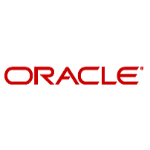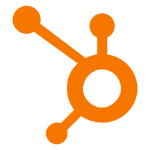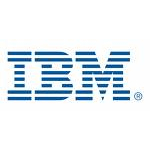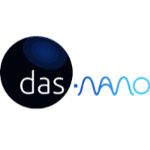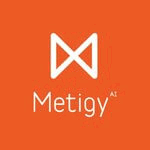TechnologyCounter provides genuine, unbiased real user reviews to help buyers make informed decisions. We may earn a referral fee when you purchase through our links, at no extra cost to you.
List of 15 Best Artificial Intelligence Software
Showing 1 - 15 of 208 productsChatGPT is a new chatbot software designed to enhance your online communication experience. With advanced artificial intelligence technology, ChatGPT is a tool that will streamline your conversations and provide valuable assistance with ease. Say goo...Read ChatGPT Reviews
Oracle AI, the groundbreaking technology that is revolutionizing the world of artificial intelligence. With its exceptional capabilities algorithms, Oracle AI is paving the way for a new era of innovation and efficiency. Get ready to experience the p...Read Oracle AI Reviews
HubSpot AI is a software revolutionizing marketing and sales strategies. With its advanced technology and data-driven insights, HubSpot AI streamlines workflows, maximizes productivity, and delivers unparalleled results. Say goodbye to manual tasks a...Read HubSpot AI Reviews
IBM Watson is an advanced and highly intelligent software that utilizes artificial intelligence and analytics to process massive amounts of data, extract valuable insights, and assist in making informed decisions. With its advanced cognitive computin...Read IBM Watson Reviews
Intellectsoft, a leading software development company that specializes in creating innovative and custom solutions for businesses of all sizes. With a team of skilled professionals and a reputation for delivering top-notch services, Intellectsoft is...Read Intellectsoft Reviews
Yseop is a software that has changed the way businesses gather and analyze data. With its advanced natural language generation technology, Yseop transforms complex information into clear and concise text, providing businesses with valuable insights a...Read Yseop Reviews
das-Nano is a leading software company known for its innovative solutions in the digital world. With a team of experts technology, they aim to provide top-quality products and services to their clients. From software development to digital marketing,...Read das-Nano Reviews
Atomic AI is a software that revolutionizes the way you understand and interact with your data. Powered by advanced artificial intelligence technology, Atomic AI offers unparalleled insights and solutions that elevate your business strategies to new...Read Atomic AI Reviews
Adgorithms is revolutionizing the world of digital advertising with its innovative software. Our powerful and intelligent technology is unlike any other, allowing businesses to efficiently and effectively reach their target audience. With Adgorithms,...Read Adgorithms Reviews
DemandJump is a software designed to help businesses improve their online presence and drive more traffic to their websites. By utilizing AI and actionable insights, DemandJump allows companies to understand their customers behavior and make data-dri...Read DemandJump Reviews
Metigy is more than just a software, its a platform that empowers businesses of all sizes to take control of their social media marketing. With intuitive tools and data-driven insights, Metigy helps businesses achieve their goals and reach new height...Read Metigy Reviews
PatSnap provides innovative solutions for businesses to navigate the complex world of intellectual property. Our software allows users to easily access and analyze data to make informed decisions about their patents, trademarks, and other forms of in...Read PatSnap Reviews
Orb Composer is a music composition software designed to assist musicians of all levels in creating unique and dynamic pieces. With its intuitive interface AI technology, Orb Composer allows users to effortlessly explore new melodies and harmonies, u...Read Orb Composer Reviews
Braina is a software that will transform the way you interact with your technology. With its advanced features, Braina offers a seamless experience to enhance your productivity and make your daily tasks a breeze. Say goodbye to traditional methods an...Read Braina Reviews
Manthan is a software that revolutionizes the way businesses operate. With its advanced features and user-friendly interface, Manthan is designed to streamline processes, increase efficiency, and maximize profitability. Whether youre a small startup...Read Manthan Reviews
- What Is Artificial Intelligence(AI) Software?
- List of 10 Best Artificial Intelligence(AI) Software for 2024
- What Are the Top Key Features of Artificial Intelligence Software?
- Top Reasons Why Businesses Need Artificial Intelligence Software?
- Write the Top Benefits of Artificial Intelligence Software?
- What Are the Steps to Choose the Right Artificial Intelligence Software?
- What Are the Types of Artificial Intelligence Software for Different Industries?
- What Are the Technology Trends for Best AI Software?
- What Are the Deployment Options for Artificial Intelligence Software?
What Is Artificial Intelligence(AI) Software?
Artificial Intelligence Software (AI Software) is a collection of computer algorithms and technology that imitate human cognitive abilities such as decision-making, problem-solving, and planning. AI software is utilized in a variety of applications, including self-driving cars, robotics, natural language processing, image recognition, and others. AI software is intended to match, if not outperform, human intelligence. To get the best outcomes, AI algorithms are often trained using massive volumes of data and paired with computational capacity.
This technology offers the ability to automate a wide range of formerly manual processes. AI software is having an impact on a wide range of industries, including healthcare, banking, retail, and cybersecurity. Its purpose is to improve decision-making, planning, and problem-solving processes by automating or aiding them. Artificial intelligence software is considered to be a great tool for enhancing productivity.
List of 10 Best Artificial Intelligence(AI) Software for 2024
Check out our list of the top 10 artificial intelligence software(AI) options that can work for any business including IBM Watson, Qualifyed ai, h2o.ai, and many more tools. Choose the right AI tools for your business and boost your company's efficiency.
1. HubSpot AI
HubSpot AI is a cutting-edge artificial intelligence system created by HubSpot, a prominent marketing, sales, and customer support platform. HubSpot AI enables businesses to automate and streamline numerous operations like as lead generation, tailored content recommendations, customer support interactions, and data analysis by leveraging cutting-edge machine learning and natural language processing capabilities.
This intelligent technology improves efficiency and effectiveness, allowing organizations to better understand and engage their target audiences while streamlining overall operations.
Features:
- Lead Scoring
- Content Optimization
- Email Marketing
- Chatbots
- Customer Service Automation
- Sales Automation
- Predictive Analytics
Pricing:
- Free Plan: HubSpot provides a free subscription with basic CRM features, email marketing, and some sales and marketing tools.
- Starter Plan: The Starter Plan offers more extensive marketing, sales, and customer service features for roughly $50 per month.
- Professional Plan: Starting at roughly $800 per month, the Professional Plan provides more automation, customization, and reporting features.
- Enterprise Plan: Starting at roughly $3,200 per month, the Enterprise Plan contains even more advanced features, making it suited for larger enterprises or those with complex demands.
2. IBM Watson
IBM IBM Watson is a collection of artificial intelligence (AI) services and solutions. It is intended to give organizations and developers the tools and capabilities they need to use AI and machine learning in a variety of applications. Watson's capabilities transcend multiple areas, including healthcare, finance, and customer service. Its mission is to help organizations make better decisions, automate processes, and improve customer experiences.
Features:
- Natural Language Processing (NLP)
- Machine Learning
- Visual Recognition
- Speech-to-Text and Text to Speech
- Decision Optimization
- Watson Assistant
- Personality Insights
Pricing:
IBM Watson provides a variety of services, with prices varying depending on the capabilities and usage needs. It provides both free and premium options, with pricing based on variables such as the amount of API calls, storage, processing capacity, and additional support services. It is critical to contact IBM directly or check their official website for the most up-to-date and correct pricing information, as it is subject to change.
3. Qualifyed AI
A qualified AI system is one that has undergone thorough training and validation in order to meet specific industry standards or needs. These requirements could be related to accuracy, dependability, security, or regulatory compliance. Qualified AI systems are frequently used in crucial applications such as healthcare, finance, and self-driving cars, where precision and dependability are critical.
Features:
- Accuracy and Robustness
- Explainability
- Compliance and Security
- Continuous Monitoring and Updates
- Integration and Scalability
Pricing:
Pricing for competent AI services can vary greatly based on criteria such as the AI system's sophistication, the industry it serves, the volume of data handled, and the quality of support provided.
4. Google Cloud AI Platform
Google Cloud AI Platform is a complete cloud-based service that allows developers and data scientists to construct, deploy, and manage machine learning models at scale. It provides a set of tools and capabilities aimed at streamlining the end-to-end machine learning workflow, making it easier to construct and deploy AI solutions.
Features:
- Data Preparation
- Model Training
- Scalability
- Hyperparameter Tuning
- Model Evaluation
- Deployment
- Online and Batch Prediction
- Model Monitoring
Pricing:
The cost of using the Google Cloud AI Platform varies depending on several aspects, including the services used, model complexity, data storage, and consumption. The platform is priced on a pay-as-you-go basis.
5. Cortana
Microsoft's Cortana is an AI-powered virtual assistant. It was first released in 2014 with the goal of providing consumers with a more personalized and interactive experience across several Microsoft platforms and services.
Features:
- Voice-Activated Assistance
- Natural Language Understanding
- Task Automation
- Personalization
- Integration with Microsoft Services
- Cross-Platform Availability
- News and Information
- Smart Home Control
Pricing:
Cortana is now available for free to users across Microsoft's supported platforms.
6. H2O.AI
H2O.ai is a popular open-source artificial intelligence (AI) and machine learning platform meant to make constructing, deploying, and managing machine learning models easier. H2O.ai created it with the goal of offering scalable and user-friendly solutions for data scientists, machine learning developers, and enterprises.
Features:
- Machine Learning Algorithms
- Distributed Processing
- AutoML
- Model Interpretability
- Integration with Popular Tools
- Scalability
- Streamlined Deployment
Pricing:
H2O.ai's platform was available in both open-source and commercial versions. The open-source version is freely available to the community, offering users free access to a large amount of the platform's functionality.
7. Salesforce Einstein
Salesforce Einstein is a customer relationship management platform that incorporates artificial intelligence (AI). It expands Salesforce's capabilities by providing advanced AI-driven insights, predictions, and recommendations. Salesforce Einstein enables organizations to make data-driven choices, automate processes, and provide personalized customer experiences.
Features:
- Predictive Lead Scoring
- AI-Driven Opportunity Insights
- Automated Activity Capture
- Personalized Marketing Campaigns
- Natural Language Processing (NLP)
- Image Recognition
- Predictive Analytics
- Voice Assistant Integration
Pricing:
Salesforce Einstein features can be added to a variety of Salesforce products, including Sales Cloud, Service Cloud, and Marketing Cloud. The cost of Einstein features varies depending on your Salesforce version and the exact functionalities you want to use. Salesforce often provides several pricing tiers based on your organization's size and the extent of your requirements.
8. Viso.AI
Viso.AI is most likely a platform that uses complex algorithms and machine learning approaches to give a variety of solutions and services. It could be used in a variety of fields, including natural language processing (NLP), computer vision, data analysis, and automation.
Features:
- NLP Capabilities
- Computer Vision
- Data Analysis and Insights
- Automation
- Predictive Modeling
- Customization and Integration
Pricing:
Pricing models might differ depending on the services, features, and levels of support provided.
9. Observe.AI
Observe.AI is a conversational AI platform that uses call analysis and automation to help and optimize customer service interactions. It uses natural language processing (NLP) and machine learning to evaluate consumer conversations in real time, providing organizations with useful insights and actionable data. The platform strives to improve client experiences, agent performance, and, ultimately, customer pleasure.
Features:
- Speech Analytics
- Real-time Coaching
- Call Monitoring
- Analytics and Reporting
- Automation and Workflow Integration
- Compliance and Security
Pricing:
Observe.AI generally provides subscription-based pricing structures, with the cost determined on parameters such as the number of customers, call volume, and additional functionality necessary. They may also offer several pricing tiers targeted to different business sizes.
10. TensorFlow
TensorFlow is a Google Brain-developed open-source artificial intelligence (AI) library. It is a popular and extensively used framework for developing machine learning models, particularly deep learning models. TensorFlow is a crucial tool for AI researchers and developers since it provides a flexible and efficient approach to apply various machine learning algorithms and neural networks.
Features:
- Versatility
- Scalability
- Highly Optimized
- Flexibility
- TensorBoard
- TensorFlow Extended (TFX)
- Keras Integration
- Community and Ecosystem
Pricing:
TensorFlow is an open-source framework, and the core library can be used without paying any license fees.
What Are the Top Key Features of Artificial Intelligence Software?
The following are the top main qualities of Artificial Intelligence Software:
-
Machine Learning (ML): Machine Learning enables AI software to enhance its performance in certain tasks over time and with repeated data exposure. It allows the software to learn from previous events, recognize patterns, and modify its behavior accordingly.
-
Natural Language Processing (NLP): NLP allows AI software to recognize and process natural language input such as speech or text. This is especially handy in applications like chatbots, where the user may easily communicate with the AI.
-
Computer Vision: Computer Vision (CV) enables AI software to recognize objects and forms in photos and videos. This is useful in a range of applications, including biometrics, facial recognition, and tracking the movements of people in a crowd or vehicle.
-
Optimization and Automation: Automation allows AI software to take over monotonous or time-consuming operations and execute them with fewer errors and greater precision. This includes jobs that need high degrees of accuracy or speed that humans find challenging to execute.
-
Deep Learning (DL): DL enables AI software to make judgments and spot patterns that would be too complicated for a traditional algorithm to detect. This is especially beneficial in applications such as robotic process automation, where substantial domain knowledge is necessary to accomplish a task accurately.
Top Reasons Why Businesses Need Artificial Intelligence Software?
-
Enhance the client experience by providing personalized services that better fit the demands of the consumer.
-
Automate repetitive processes, allowing employees to focus on more important duties.
-
Increase efficiency by automating time-saving processes.
-
Use data to provide better and more accurate advice to clients.
-
Decision-making is both faster and more accurate.
-
Collect data for in-depth market research.
-
Increase automation and cost savings by implementing automated procedures.
-
Machine learning technologies can assist in identifying, comprehending, and forecasting client behavior.
-
Scalability in a company requires task automation.
-
Encourage creativity by identifying new patterns and trends in data.
-
With localized capabilities, you can reach customers and stakeholders on a global scale.
-
Increase the precision and efficiency of product development and testing.
-
Using automated communications, you may increase customer engagement and loyalty.
-
Data can be used to predict trends, design products, and enhance operations.
-
Use artificial intelligence to target and personalize marketing campaigns.
Write the Top Benefits of Artificial Intelligence Software?
-
Complex task automation: Artificial intelligence (AI) software can automate complex jobs that were previously performed by people. This enables more accurate and efficient results in less time.
-
Improved precision and accuracy: AI software employs advanced algorithms to process data fast and precisely. This increase in precision and accuracy has the potential to improve the quality of services and products.
-
Cost savings: Because AI software requires fewer human resources to operate, it can drastically cut operating expenses. AI can also save money by lowering the demand for manual labor.
-
Improved customer experience: By effectively predicting consumer demands and responding to inquiries promptly and accurately, AI can create tailored customer care experiences.
-
Decisions that are more streamlined: AI software can assist businesses in making better-informed decisions more rapidly, based on the analysis of enormous amounts of data.
-
Increased scalability: AI applications may automate processes and optimize workloads to increase scalability, allowing businesses to grow swiftly and respond to changing demand.
-
Improved safety: Artificial intelligence (AI) can be used to monitor possible safety and security threats, allowing for proactive and prompt intervention.
What Are the Steps to Choose the Right Artificial Intelligence Software?
-
Determine your requirements.When choosing AI software, it is critical to first determine which form of AI program best meets your individual needs, ranging from operations automation to cognitive applications.
-
Investigate programs and products. Spend some time learning about different AI software solutions, their components, and systems. Examine reviews and customer experiences to determine whether items and services are offered.
-
Take a look at the features and automation. Determine which features and automation will be most beneficial to your firm. Consider AI systems that are optimized for specific tasks or activities.
-
Recognize the costs. Investigate the cost of a system. Because the cost of AI software varies, it is critical to examine the cost before making a selection.
-
Examine the specifics of implementation. Learn about the system's installation and deployment requirements. Understand how the system works so you can determine if it is appropriate for your organization.
-
Make use of trial versions. Request sample software versions to better understand how the system works. Experiment with various software packages to decide which one best meets your needs.
-
Choose the best option. Determine the best solution for your organization and make a final decision after analyzing all options.
What Are the Types of Artificial Intelligence Software for Different Industries?
Artificial Intelligence software for various sectors varies depending on the program's goal and the industry in which it will be employed. In general, AI software can be divided into three major categories:
- Models that are typically pre-trained on existing datasets and used to tackle issues such as image classification, natural language processing, and computer vision are examples of pre-trained AI software. Businesses primarily utilize this to automate and streamline procedures.
- Custom-built AI software is developed to answer a specific problem in a specific sector. Businesses utilize this form of AI software when pre-trained software cannot meet their needs. AI experts are typically hired by businesses to create such software.
- AI-as-a-Service is a technology that allows enterprises to rent artificial intelligence software from third-party suppliers. This form of AI software is typically utilized by huge corporations that lack the capacity to develop their own AI software.
- Each of these types of AI software can be utilized in a variety of industries, based on the needs of the industry and the desired end result. Pre-trained AI software, for example, is frequently used in the healthcare industry for medical picture processing, but custom-built AI software may be employed by financial institutions for risk mitigation and forecasting. Similarly, AI-as-a-service can be used to assist customers with product recommendations in retail and eCommerce.
What Are the Technology Trends for Best AI Software?
-
Automation: AI-powered automation has grown in popularity in recent years, allowing businesses to automate complicated operations and processes swiftly and effectively. Automation can assist to improve customer service, lower operating expenses, and streamline operations, among other things.
-
Machine Learning: Machine learning is a crucial component of AI software because it enables machines to learn from enormous datasets and make predictions and judgments using sophisticated algorithms. It is useful for predictive analytics, natural language processing, and other applications.
-
Natural Language Processing: Natural Language Processing (NLP) is a sort of artificial intelligence (AI) technology that is used to understand and interpret human language. It can be used to generate reports automatically, process client requests, and make targeted marketing recommendations, among other things.
-
Deep Learning: Deep Learning is a subset of machine learning that allows machines to comprehend difficult concepts. It allows machines to perform picture identification, audio recognition, and natural language comprehension.
-
Robotics: Another key growing topic inside AI software is robotics. Robotics allows machines to navigate physical spaces and interact with their surroundings. It can be utilized for process automation, product assembly, and other applications.
What Are the Deployment Options for Artificial Intelligence Software?
Artificial Intelligence (AI) software solutions can be deployed in a variety of ways. These are some examples:
- On-premise deployment involves hosting AI solutions on corporate premises and running them on the firm's own hardware and software systems.
- Cloud deployment refers to hosting the AI solution on the vendor's cloud-based infrastructure rather than on-premise.
- Edge deployment is when AI is used at the edge or the most remote section of a network, such as the Internet's edge or within a user's device.
- Hybrid deployment incorporates components from various deployment models, such as cloud and on-premise.
Finally, the optimum AI deployment option is determined by the organization's needs and budget.

